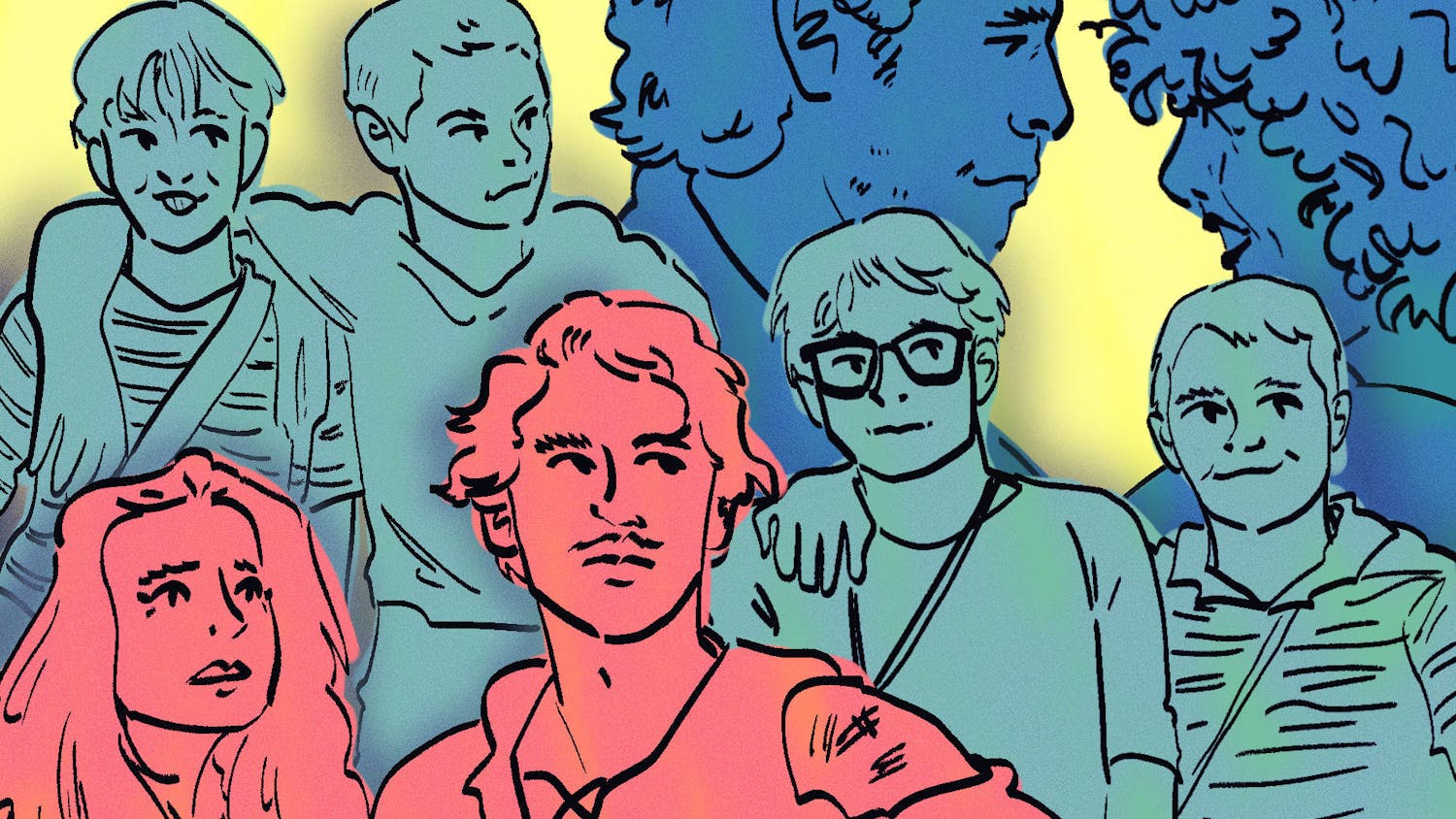In May of 2016, Carene Mekertichyan ’16 made her dream into a reality when her senior project, a production of the late Ntozake Shange’s Obie Award-winning play and choreopoem “For Colored Girls Who Have Considered Suicide/When the Rainbow is Enuf” was performed for the greater Dartmouth community. Shange, who passed away on Oct. 27 at the age of 70 after suffering health problems, made a significant impact on Mekertichyan since her first encounter with the playwright’s work in middle school. Mekertichyan remembered the women in Shange’s work as she got older and grew into her capacity to understand the depth of Shange’s creation.
A departmental success in the spring of 2016, Carene’s senior production of “For Colored Girls” sold out each night of its run and received immense audience feedback for its maturity, emotional weight and honesty about issues of race, gender, domestic violence and mental health. An enriching and fulfilling academic and artistic endeavor, Mekertichyan still expresses enthusiasm when she speaks about the production now, two years later.
“I can’t think about it without smiling” Mekertichyan said.
Emphasizing the significance of the project, Mekertichyan pointed out that “people had to sit and listen to black women in their own words.” For her, the production “created empathy and understanding with people who maybe don’t share our life experience,” and therein lies the power of Ntozake’s work — her words have the potential to transform our relationships to ourselves and to others.
Jovanay Carter ’19, who was the only first-year student in the cast during the time of the production, shared a similar sentiment to Mekertichyan. Lacking experience with theater performance, Carter embraced the process and her castmates, and ultimately learned a lot about herself as a person and a performer.
“I had never done a play before,” Carter said.
Faced with heavy material that engaged with narratives of sexual violence and suicide, Carter and her castmates were forced to band together in order to meet the challenge of Shange’s work.
“The play was difficult material,” Carter said. “All we could do was support each other.”
Perhaps this camaraderie explains why the cast’s intense nostalgia for the production is rivaled only by their fond reflections on Shange’s work. In their words, the impact that the recently deceased poet had on their lives as artists and as young black women is palpable. In the wake of her death, students, alumni and professors are taking the time to reflect on Shange’s legacy, her importance in theater history and her influence on the Dartmouth community.
Replacing her given name of “Paulette Williams” in 1971, Shange renamed herself with the Xhosa name “Ntozake,” which means “she who has her own things,” and the Zulu name “Shange,” which means “he/she who walks/lives with lions.” Carrying this instinct for reclamation into her work, many of Shange’s plays and novels suggest that there is great power in naming oneself and one’s experiences. Over the course of her career, she penned several novels about young women and girls searching for their power and names including “Sassafrass, Cypress, and Indigo,” “Liliane: Resurrection of the Daughter” and “Betsey Brown.” Though her legacy within American theater, history and art is still taking shape in the weeks since her passing, Shange’s influence on Dartmouth can already be seen in her remembrance by members of the community.
Giving voice to the interiority of black women’s lives, Shange’s work is best known for its capacity to construct worlds with care. Inspired by Shange’s oral power and poetic convictions, Mekertichyan set out in 2015 to bring the women of “For Colored Girls” to life for the Dartmouth community. But she could not have predicted the number of acclaimed productions led by black female students that would grace the Hopkins Center for the Arts in the years following her show. Arguably, “For Colored Girls” set the ground work for the successes and receptions of department productions like “Intimate Apparel” and “Eclipsed,” as well as senior projects like “Citrus” by Celeste Jennings ’18.
Speaking to this proliferation of black women’s creative involvements, Carter said that “you can’t ignore the art and you can’t act like [art] isn’t important for voicing your existence”
Theater professor Monica Ndounou, who teaches Shange’s work in Theater 22, “Black Theater, U.S.A.” and led a production of “For Colored Girls” during her time at Tufts University in 2010, reflected on the importance of Shange’s contributions to American theater.
“While I was driving home on [Oct. 23], I saw two parallel rainbows,” she said in an email. “That day in my ‘Black Theatre U.S.A.’ class, [a] student ... gave a presentation on [Shange] and [“For Colored Girls”]. During her presentation, she referenced a story she found where Shange talks about seeing two rainbows when she was writing the piece. I took a picture of the rainbows and filmed my own tribute to Shange in that moment. Little did I know in the next few days she would join the ancestors.”
Ndounou said that Shange, alongside fellow playwright August Wilson, had headlined the 1998 “On Golden Pond” Black Theatre Summit at Dartmouth. Although Shange was unable to join this year’s summit, her sister and longtime collaborator Ifa Bayeza was able to attend, and was honored the CRAFT Institute Continuum Award along with other members of the original executive committee that had organized the 1998 event.
Ndounou said that she had also had an opportunity to take a class with Shange and serve as an assistant director for one of the shows as a graduate student, in addition to directing “For Colored Girls” in 2010.
“I am one of the many artists who have been inspired by her contributions to our field and the world,” she said.
Ndounou will be attending Shange’s memorial service in Washington D.C. on Nov. 12.
“On behalf of the multitude of artists who recognize [Shange] as an artistic foremother I say: we love you Ntozake and thank you for revealing our metaphysical dilemmas to the world while reminding us of our unique power to heal ourselves and one another with a laying on of hand,” she said. “In your choreopoem, you urge us to ‘sing a black girl song,’ and we continue to sing.”



